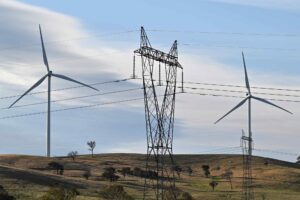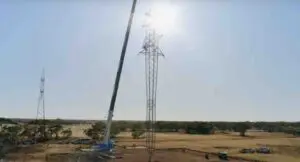The federal government has pushed through EPBC environmental approval for the Muskerry solar farm and battery in Victoria in just 20 days.
The 250 megawatt (MW) solar project, which will include a 200 MW / 800 MWh battery,” will be located around 30km northeast of Bendigo in central Victoria.
And it has an unusually long operational life, with developer Edify Energy specifying a lifespan of 50 years. Solar projects are normally slated to have a lifespan of 25-30 years.
It will create permanent 10 jobs in the area, noted environment minister Tanya Plibersek when she announced the speedy approval.
“I’ve now approved 65 renewable energy projects – enough to power more than 7 million Australian homes,” she said in a statement.
“The renewable energy transition is real, it’s happening right now. And it’s the only plan supported by experts to deliver clean, affordable and reliable power.
“Australians have a choice between a renewable energy transition that’s already underway and driving down prices, or paying for an expensive nuclear fantasy that would deliver around 4 per cent of our energy needs and add 1.7 billion tonnes to Australia’s carbon emissions.”
The Edify Energy project was referred into the federal EPBC process due to its impact on Grey, White and Yellow Box eucalyptus trees and native grasslands, which are listed as endangered under the EPBC Act.
Muskerry will take about 18 months to build and connect into a 220 kilovolt (kV) substation and then into AusNet’s overhead 220kV transmission line.
Renewables going gets tought
In her decision to approve the Muskerry project, Plibersek reiterated the government’s goal of turning Australia into a renewable energy superpower and that her government was elected to deliver progress on renewables.
A new report from the Clean Energy Council highlights the progress being made in the electricity grid, with emissions expected to be cut by 40 per cent over the decade from 2015 to 2025, despite attempts by the federal Coalition to stop the rollout while in government, and in Opposition.
But it is one of the few bright spots on emissions reductions, with Australia struggling to significantly reduce its carbon footprint other than through the controversial land use clause the country secured in Kyoto.
Prime Minister Anthony Albanese dodged questions at the APEC summit in Peru about whether he would commit the country to a significantly 2035 emissions target, as agreed at the COP29 talks in Azerbaijan, attracting accusation of “political cowardice” in the face of climate denier Donald Trump’s sweeping election victory in the US.










